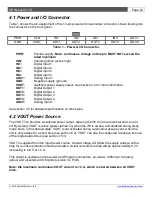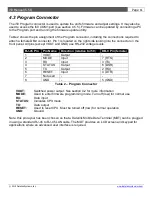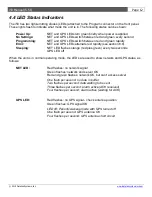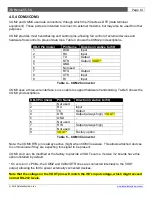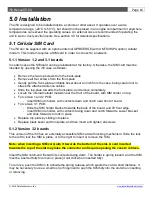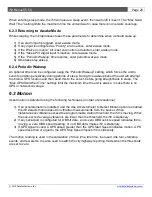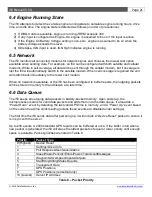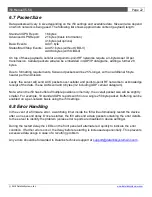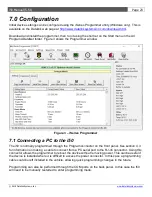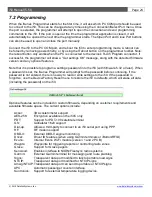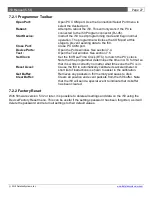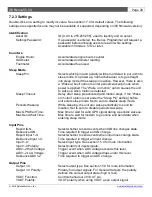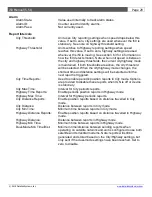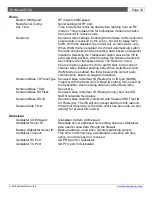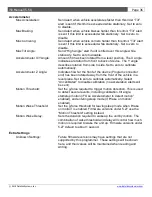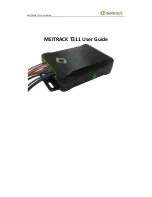
i50 Manual (5.51)
Page 22
© 2018 Datalink Systems, Inc.
www.datalinksystemsinc.com
6.7 Packet Size
Data packets will vary in size depending on the i50 settings and available data. Size will also depend
on which network is being used. The following list shows approximate content (payload) length:
Standard GPS Report:
16 bytes
Advanced GPS Report:
21 bytes (basic information)
41 bytes (all options)
Basic Events:
Add 1 byte
Status/Start/Stop Events: Add 51 bytes (without OBD-II)
Add 84 bytes (with OBD-II)
On top of these payloads, cellular and point-to-point RF networks require a 3-byte Asset ID per
transmission. Cellular packets will also be embedded in UDP/IP datagrams, adding a further 28
bytes.
Due to formatting requirements, Kenwood packets will be 25% longer, with an additional 5 byte
header per transmission.
Lastly, the server will send ACK packets over cellular and point-to-point RF networks to acknowledge
receipt of the data. These ACKs will add 4 bytes (32 including UDP cellular datagram).
Note: when the i50 has buffered multiple positions in memory, the overall packet size will be slightly
smaller. For example, 19 standard GPS reports will fit into a single 250 byte packet. Buffering can be
enabled on a per-network basis using the i50 settings.
6.8 Error Handling
In the event of a firmware error, a watchdog timer inside the i50 will automatically restart the device
after a one second delay. Once restarted, the i50 will send a data packet containing the error details
to the server to identify the problem (unless error reports are disabled in device settings).
During the restart delay the LEDs on the front panel will alternate red quickly to indicate the error
condition. If further errors occur, the delay before restarting is increased exponentially. This prevents
excessive data usage in case of a recurring problem.
Any errors should be forwarded to Datalink technical support at
.



